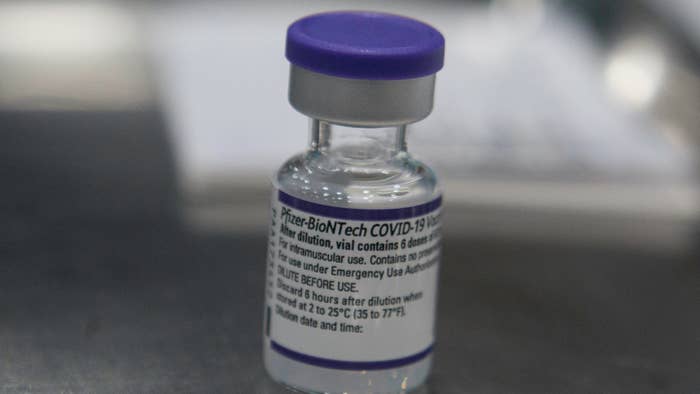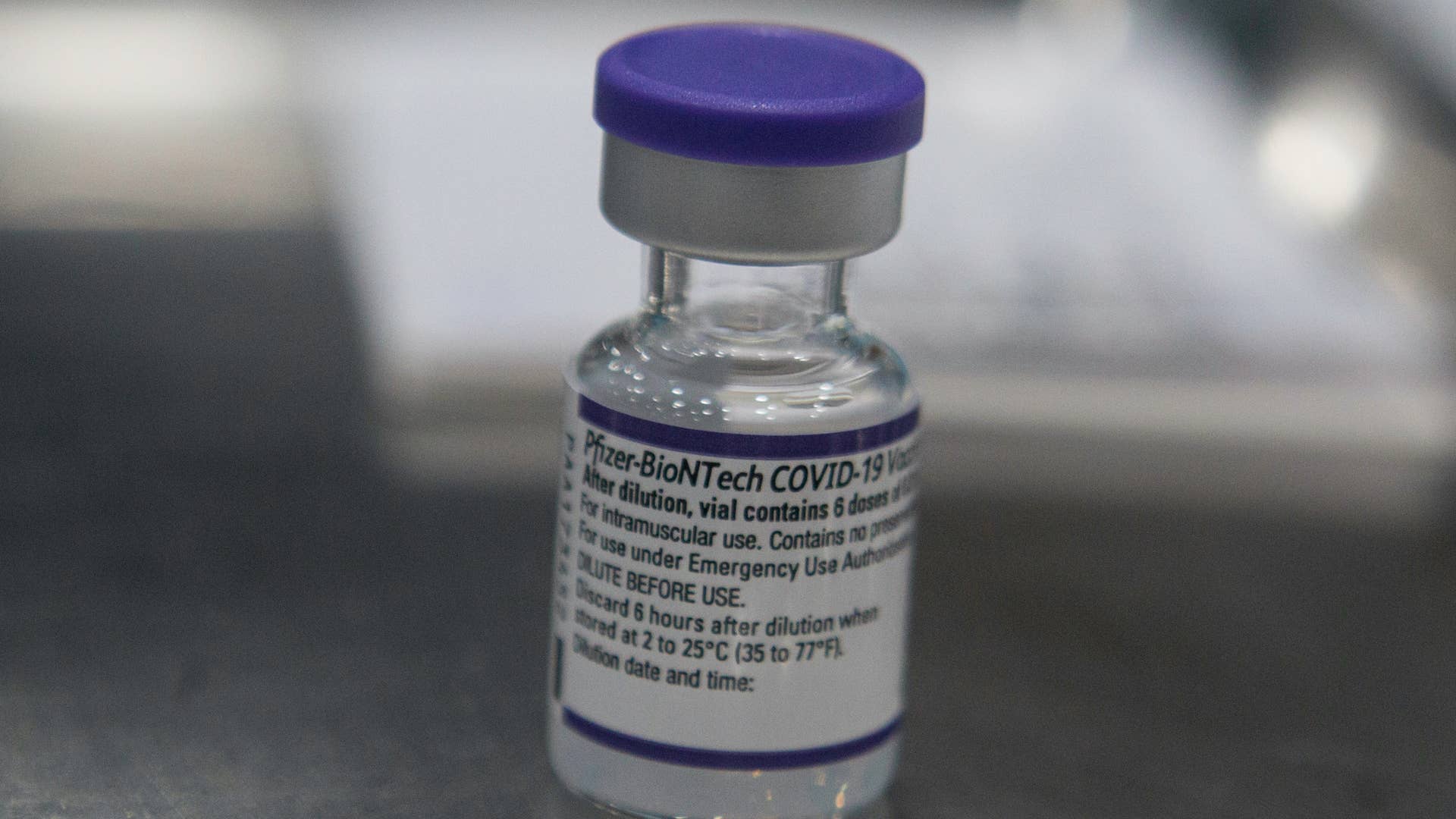
UPDATED 10/29, 3:35 p.m. ET: Children from the ages of 5 to 11 are now cleared by the FDA to get the Pfizer vaccine against COVID-19. The plan is for children within the age range to get two shots spaced out by three weeks.
“The FDA cleared kid-size doses—just a third of the amount given to teens and adults—for emergency use, and up to 28 million more American children could be eligible for vaccinations as early as next week,” the Associated Press writes.
CDC advisers on Tuesday will give, per the AP, “more detailed recommendations on which youngsters should get vaccinated, with a final decision by the agency’s director expected shortly afterwards.” Moderna’s coronavirus vaccine is being studied among kids below the age of 12 as well.
See original story below.
An FDA panel has voted to recommend emergency use authorization of Pfizer’s COVID-19 vaccine for children aged between 5 to 11 after its vaccine advisers voted 17-0 with one abstention on Tuesday.
According to CNN, the board agreed that the benefits of administering younger children with the vaccine outweigh the risks at this point, and have cut the dosage for kids to one-third of the normal adult dose to avoid any minor side effects.
During the meeting, Pfizer senior vice president William Gruber said that he believes they have optimized the vaccine as well.
“We think that we have optimized immune response and minimized reactions,” he said.
Some of the concerns around administering the vaccine to younger people that the panel also had are centered around myocarditis, which is an inflammatory heart condition. While it’s more common in young men and has only been seen in very mild cases, not enough children were tested to see if they would also be at risk.
Dr. Arnold Monto, chairman of the committee and a professor of epidemiology at the University of Michigan, believes that the lower dosage of the vaccine avoids these side effects and thus makes it much safer to administer.
“We’ve identified a lower dose which we expect is going to decrease the frequency of the rare side effect of myocarditis,” Dr. Monto said.
On the other hand, Dr. Cody Meissner, a professor of pediatrics at Tufts University School of Medicine, isn’t comfortable with the vote right now because she’s worried it might be mandated for children to attend school.
“I am just worried that if we say yes, then the states are going to mandate administration of this vaccine for children to go to school and I do not agree with that,” she said. “I think that would be an error at this time.”
The panel will be meeting again over the next two to three weeks to talk about administering kids with the vaccine, with CDC Director Dr. Rochelle Walensky having the final say. Pfizer’s vaccine is currently authorized for youths aged 12-17.

